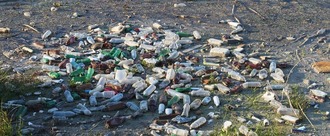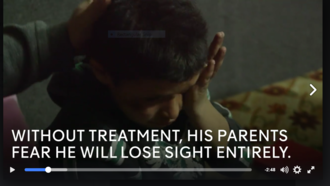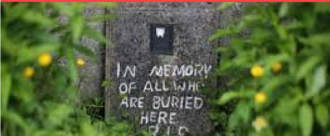- Featured
- Animal Rights
- Anti-racism
- Arts & Culture
- Children
- Climate
- Corporate accountability
- Crime
- Disability rights
- Economic
- Education
- Environment
- Food and Sustainable Production
- Gender Equality
- Governance and Transparency
- Health
- Housing
- LGBT Rights
- Mental health
- Northern Ireland
- Planning
- Privacy and Data Protection
- Rural Inequality
- Social Justice
- Trade
- Transport and Infrastructure
- Workers' Rights
- More
-
Please sign Irish petition for UN Committee Against TortureCommission to Inquire into Child Abuse Committee recommends that the State party: (a) Indicate how it proposes to implement all the recommendations of the Commission to Inquire into Child Abuse and indicate the time frame for doing so; (b) Institute prompt, independent and thorough investigations into all cases of abuse as found by the report and, if appropriate, prosecute and punish perpetrators; (c) Ensure that all victims of abuse obtain redress and have an enforceable right to compensation, including the means for as full rehabilitation as possible. Call to action : please show your support by commenting via change.org also uplift.ie and sharing this cause via social media Thank you to you and your supporters X p.s. no abusive language47 of 100 SignaturesCreated by Cli Buckley
-
Support Our ElderlyOur Elderly motorists present with their own problems of frailty and mobility concerns, not to mention fear. In general, medical eligibility for Disabled Blue Badge Holders excludes age as a factor, leaving Elderly people exposed. Providing designated parking bays at key locations in and around City &Town centres encourages greater equality, independence and community participation for our Elderly Community.16 of 100 SignaturesCreated by Brendan Byrne
-
RESPREEZA for ALPHA 1 Patients in IrelandCampaigning for the life-changing therapy... RESPREEZA to be approved / available here as it is in TWELVE OTHER EUROPEAN COUNTRIES! It is estimated that over 3,000 people here in Ireland suffer with Alpha One, a genetic condition affecting the lungs, liver and skin. For some patients, a therapy trial back in 2006 offered a new lease of life and over time went on to improve their health, giving them some hope of a brighter future. Sadly back in 2016, patients were then told the distressing news that the pharmaceutical company that provided them with the life changing therapy would be withdrawing it, leaving patients right back at square one again. So, with the clock ticking representatives of Alpha One are now, calling for the HSE to agree a fair price for reimbursement of the therapy before it's too late.706 of 800 SignaturesCreated by Crea Sheahan
-
Petition to persuade Bernie Sanders to give public speech in Dublin on June 4th/5thBernie is giving a speech on June 4th which sold out after 1 minute. There are thousands of people who are willing to pay to hear him speak, to hear a voice for the people. Someone who stands up for the environment, all people and the planet as a whole. My hope is that hearing Bernie speak could spark the revolution that is needed in Ireland so we can transform our country and go back to the values it was founded on.221 of 300 SignaturesCreated by Cormac Nugent
-
Tax Diesel Soot PollutersDiesel Cars emit soot and NOx toxic fumes and are polluting our clean air and are bad for peoples' health. 70% of new cars purchased in Ireland are diesel - insane - due to the crazy Motor Tax Law that penalises older pre-2008 petrol cars but promotes purchase of new diesel cars. Paris to ban diesel cars from July 2017 ... many other cities to follow. Irish Motor Tax Law is regressive, 2-Tier and bad for your health. This Irish law puts high tax on pre-2008 cars and low tax on those who can afford new cars. It is socially divisive and totally unacceptable.9 of 100 SignaturesCreated by R Neuville
-
Leave Rural Post Offices AloneThe CEO of An Post has said he will close over 250 post offices in sparsely populated areas, this year. This is totally unacceptable, it cannot be justified that because an area is sparsely populated, a post office is not necessary. It is more important than ever,as rural post offices are an essential part of the community, providing many services other than just to post letters. Among these are pensions, banking, phone top-up, paying bills, to name but a few. This is totally unacceptable. I live in Carrigaholt on the Loop Head Peninsula where our main industry is tourism. It is an area of approximately 1200 sq km, and unfortunately we fit the criteria. Our post office is already the only remaining one out of an original 5. People are already travelling over 15km to use it's services, and to expect them to journey even further is disgusting. I understand that An Post has to make money, but closing post offices and putting up postage is not the way. Install broadband in the post office, even more services can be accessed, more people will use the post office. If the paperwork is made redundant by the post office being "on-line" that alone will generate enough income to run the rural business. Carrigaholt Post Office is the heart of our village. It offers local and tourist information as well as the expected services, it is a meeting place where many go to socialise, it is so much more than is expected by An Post, but not by a rural community. The only time some people go out is to collect the pension and those that have to rely on others to get them there will be unable to collect it, or carry out other transactions if the nearest post office is even further away. It is no good telling us we can have our pensions paid into the bank as we have no permanent bank to do so, this also means travelling. Local businesses use the post office every day for things like coinage and fliers. They would be affected greatly by it's closure. To take away our post office would be to take the heart from our community. It would kill it! Whenever a business has to make "financial cuts", it's always the rural areas that are looked at first, not larger urban ones. This is because financially, country areas have very little to offer large corporate organisations. It matters nothing to these people that we are left with very little, or that to use the post office will involve over an hour's time to do the minimum business. What we do have though is our pride and affection for our local post office, and so now is the time to let the country know that we won't accept the closures!!589 of 600 SignaturesCreated by Carole Head
-
Don't Bottle ItBottled water is an invented consumer need.Thirty years ago the Irish public laughed at the idea of being sold a product that you could get from the tap for next to no cost. Today we feel as though bottled water is just a normal, or even essential, item to be included in our shopping baskets. In 2016, Irish consumers spent around €76.5 million on bottled water. We are sending about 800 million plastic bottles to be processed every year and are spending about €38 million annually on disposing of plastic bottles alone. This money could be used for investment in public drinking fountains, or for improving our public water infrastructure. By choosing to not consume bottled water, you will not only reduce the environmental impacts of plastics, but you will also eliminate a senseless daily expense. Plastic bottles pollute our oceans. About 80 percent of plastics found in our oceans come from land-based sources. In 2016, the United Nations World Oceans Assessment reported that as plastics entre the oceans they breakdown into microplastics. Plastics ingested by animals, such as fish, seabirds and marine mammals, can harm the intestines, and results in infection or death. Plastics also leach an assortment of dangerous chemicals into the water, and also act as a carrier for invasive species which can contaminate remote areas of the globe. The production and distribution of bottled water is a waste of resources. Research carried out by the Pacific Institute on the "energy implications of bottled water" in the United States worked out that bottled water is estimated to cost 2,000 times more than tap water to produce. The bottled water industry in the United States required an energy input equivalent to 54 million barrels of oil and roughly three times this amount is required to satisfy global bottled water demand. This adds around 2.5 million tons of carbon dioxide to our atmosphere every year. The high energy cost of bottling water is not the only way in which this industry is needlessly wasteful. One litre of bottled water takes three litres of water to be produced. Fresh safe drinking water is a valuable, and over exploited resource that every living organism on this planet depends upon. It is not an overstatement to argue that the continued use of single-use plastic water bottles should be considered nonsensical, wasteful and extraordinarily expensive. By eliminating bottled water from your shopping bag you are helping us move towards meeting four Sustainable Development Goals. Often the United Nations Sustainable Development Goals are thought of as only being relevant for protecting the most vulnerable ecosystems, and supporting the most disempowered communities, on our planet. People often forget that to achieve the Sustainable Development Goals by 2030, social, economic and environmental problems that are endemic within western consumer-lead countries must be considered as integral to the project. Our seemingly inconsequential habits have direct effects on the health of the planet, and the livelihoods of some of the world's most vulnerable communities in the world. We need to become aware of the consequences of our actions, but we also need to be responsive, and take brave steps towards a truly sustainable future. Let's reduce our use of plastic bottles in Ireland, and all place pressure on the Irish government to stop selling, or providing, bottled water in public institutions. Don't Bottle It! Be Brave we can make this change.225 of 300 SignaturesCreated by Rhiannon Thompson

-
Keep people working in libraries not machinesPeople are losing contact with people leading to poorer mental health. Libraries are ideal places to have a chat with someone. Also working there is a lovely satisfying job.69 of 100 SignaturesCreated by Sinead O Brien
-
Bring Moussa to Ireland for sight saving treatment NOW.Irish people are supportive of the idea of sponsoring refugee families. Let's start the ball rolling by offering Moussa and his family safety and urgent medical treatment to save his sight. They have already lost their home and live in horrific conditions in Lebanon where medical services are completely stretched. They are approved for resettlement but have not been offered a safe haven so far. This little boy needs urgent medical care which Ireland can provide, and he does not have time to waste. We have the capacity to sponsor this family and many of us are willing to do what we can financially, socially, emotionally to support this boy's family to get to Ireland. Let's make this happen for Moussa and start the important conversation about refugee family sponsorship in Ireland. https://www.facebook.com/Channel4News/videos/10154734027521939/1,509 of 2,000 SignaturesCreated by Jennifer Moroney-Ward
-
Save T.A.R.G.E.T Community ServiceT.A.R.G.E.T is a vital community service that provides literacy skills, counselling, community employment, extensive training and affordable childcare to the local community in Donaghmede. But, we have just been told that they need to be out of their premises by June - leaving the future of the project - and all the people it supports - hanging in the balance. Can you sign the petition to ask Dublin City Council to make sure a suitable home for our project is found before the June deadline.787 of 800 SignaturesCreated by T.A.R.G.E.T Donaghmede

-
Make Medical Cannabis Easily Accessible in 2018There is overwhelming support for making medicinal cannabis accessible in Ireland, and there are many successful legal frameworks to follow throughout the world. There is no excuse to continue denying those who are suffering access to a natural and affordable treatment that has been proven to help.930 of 1,000 SignaturesCreated by Richard Keyes
-
Extend the remit of Mother and Baby Homes CommissionThe Mother and Baby Homes Commission has found that there is a 'culture of “institutionalisation and human trafficking” has existed amongst various religious orders and State-funded institutions.' In light of the horrific news of the mass grave in Tuam, all other Mother and Baby Homes now need to be investigated. Only 14 Mother and Baby Homes and 4 County Homes are included within the Commission's Terms of Reference, but numerous people and organisations, including the United Nations and women who spent time in these homes, believe that the scope of the Commission's investigations should be widened.254 of 300 SignaturesCreated by Siobhan O'Donoghue












.png)